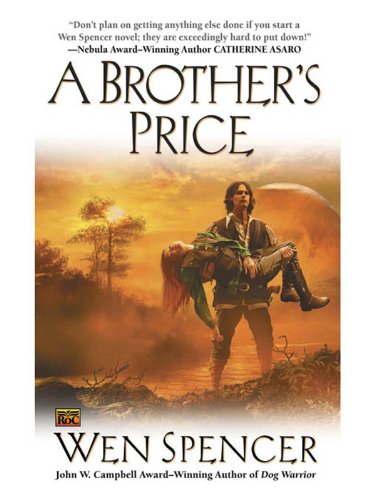 Amazon, Nook, Kobo, and iBooks.
Amazon, Nook, Kobo, and iBooks.
Somehow lately I wound up reading not one, but TWO books which feature worlds that are matriarchal. As someone who has lived in both Western and Eastern countries, it’s actually difficult for me to suspend my disbelief about such societies. Yes, the ancient Egyptians, Romans, early European, and the upper class in Sparta had more egalitarian societies than some–but they weren’t equal. And despite varying levels of equality today, I don’t think equality has been truly attained. My guess is that it is just a matter of physical strength and the rigors of pregnancy. Men are stronger and in a “might equals right” society they will have a clear advantage. Pregnancy and childbirth also work a number on women; they can make the toughest woman sick and helpless and make it hard to function even in a society based on skills rather than might. Pregnancy can also cause debilitating injuries that would make combat more difficult. Denying any of these facts doesn’t help women overcome these problems, and some stories I’ve read do deny them.
So, in order to stay engaged, I need a world where it is clear there is a reason women are able to maintain the upper hand.
Secondly, I don’t like worlds that gloss over women’s ability to be evil. I think that the propensity for “evil” comes with power and believing you can get away with it.
So, a book with a matriarchal society has to overcome these first two hurdles before I can find it believable enough to engage in–and two have!
The first is A Brother’s Price, by Wen Spencer. It’s a steampunk sort of alternate reality, and the world building is very well done. In Spencer’s society men are stronger than women, childbirth and pregnancy are still really hard, but only about 3% of the population are male. This isn’t really explained–but I could think of a very scientific reasons it could be plausible right off the bat (a disease that affects those with Y chromosomes for instance–we already have those, just not to such a degree.) In this society women are basically expendable, and do all the hard, dangerous, and interesting work. Because parties of “sisters” will kidnap men for their households, women are trained in combat, and men are carefully guarded. The men also don’t get to have much fun. They wind up doing a lot of the housework and child raising.
“Sisters” by blood and alliance share a single man in unions that are often 30 to 1. This limits the number of times a woman will get pregnant, which means she will have lots of time to do all those other dangerous, difficult, and interesting things. They make the money, and have the power over their sons and brothers. Because men don’t get to do a lot of interesting things, their opinions aren’t valued.
So here is our setting, and where we meet our hero, Jerin Whistler, about to reach the ripe old age of 16 and have his “coming out.” Just a few months before this fateful day, his big sisters and mothers are away from the homestead and Jerin, uses his greater strength to help his little sisters rescue a fallen princess. Jerin is from a lower class than the princess … and so begins a story of forbidden love in a time when the princess (and her sisters) are in danger of losing their crowns. The story is a mystery / adventure / romance with a happily ever after and a lot of humor … but the setting, and how Wen inverted the world was what made it really sparkle. I highly recommend it. You can pick it up at Amazon, Nook, Kobo, and iBooks.